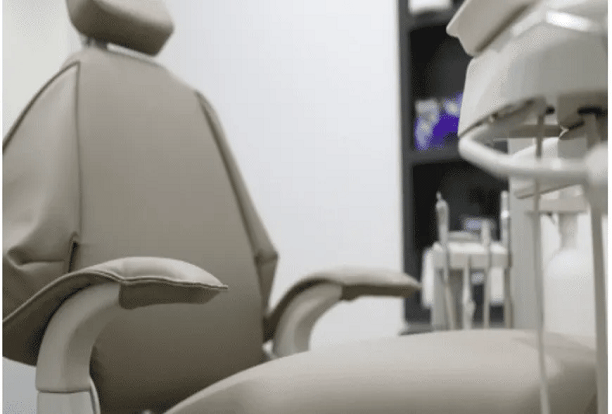The corporate message that corporates can run practices better is open to serious question. Many years of observing the actual financial outcomes of a large number of dental and veterinary practice owners reveals that overwhelmingly these practice owners achieve far better financial outcomes than are possible by those who work long term for corporately owned practices.
Differences Run to Millions of Dollars over a Full Career
The smartest graduates do themselves an enormous favor if they can secure employment with efficient, well-regarded privately conducted practices. The ability to grow their own fees, practice goodwill value, own and improve practice premises, share ownership and income with a spouse via appropriate legal structures, superannuate both themselves and spouse and, with careful long-term planning, to access the small business capital gains tax concessions mean that hard working focused practice owners create long term net assets which exceed those of long-term corporate employees by millions of dollars.
The young graduate who works in a successful privately conducted practice learns by their involvement how such a practice operates. They cannot get this vital career information by working for a corporate nor can it be taught at university.
The Most Successful Dentists are Not Preferred Providers
Through many years of examining the annual financials of dental practices, it was evident that the most successful dentists, who invariably backed up clinical skills with excellent personal communication skills, were not preferred providers to health funds. The success of their practices far exceeded even the best of the preferred provider practices.
The market for practices appears to be two tiered with those dentists who are confident of their patient relationship skills preferring non preferred provider practices but those who are not confident of patient retention seeking preferred provider practices even at the near certainty of being significantly less profitable long term.
The Weakness of Veterinary Corporates
There are many instances of formerly successful veterinary practices which, following sale to a corporate practice owner, leaked clients to surrounding practices. The message is invariably one of pet owners turning up at competing practices saying that “we never see the same vet twice since it was sold” or vets saying that the corporate “had a board out the back with everyone’s sales targets”. Staffing problems have meant that many restricted their hours and the loss of experienced vets meant that much treatment normally provided in the practice was referred out. Sale of a practice to a corporate has often resulted in a patient windfall to surrounding privately conducted practices.
Veterinary corporate buy outs led directly to a premature loss of veterinary expertise as a large number of former practice owners, mostly very experienced, predominantly males, completed earn out obligations and retired to live in comfort, and a new generation of employee vets, many of them only able to work part time, left the practices light on with experience and surgical capability. I recall the description of a former owner of a premium practice who worked on for a period describing the rundown of the practice a couple of years after sale to a corporate as ‘like owning a prestige vintage car lovingly maintained, selling it and seeing it parked in the street a year or two later badly dented and scratched’.
The best place for enterprising younger vets to start a new practice is as close as possible to a large corporate practice provided that they are prepared to communicate effectively with local animal owners, work hard and provide a reliable service in house. It is best that they establish a two-vet practice at the outset and concentrate on engaging with clients and offering a near complete suite of services with minimum referral.
What about dental corporate impact?
The leakage of clients from corporate veterinary practices toward privately owned practices begs the question as to whether the same is occurring in dentistry. The talented dentist with good interpersonal skills who purchases a practice, preferably with 2 or 3 chairs, who includes their spouse as a co-owner and who is able to share income and make dual superannuation contributions will end up vastly better off financially than a colleague who is content to work for a corporate and receives neither a return on investment from growing an active business asset in the form of a practice and gaining capital gains benefits nor, in most cases, the ability to own a second active business asset in the form of practice premises, nor the ability to share practice income from co-ownership with their spouse.
The dentist who starts up a practice from scratch will not grow as quickly as a veterinary start up near a large corporate practice and must be prepared to spend a significant period with very few patients. All successful practices were originally start ups albeit that many started in times when dentists were not so plentiful. The true gold in a practice lies within an existing patient list, which includes patients prepared to refer their friends and relatives to a good dentist that they use. A new practice starting near a popular established practice with a large patient referral base will inevitably find that for an initial two or three years its growth rate will be slow because the majority of new patients will still be referred to the existing established practice.
Investment Information: Mineral Resources Ltd
Attention is drawn to the Mineral Resources presentation to the Macquarie conference of 5 May 2015 which is available by looking up MIN on the ASX 200 and scrolling to company announcements. Mineral Resources has demonstrated impressive growth and dividends. As always, readers should do their own research and treat my comments as general information only. We own Mineral Resources in our family superannuation fund.
Are Bank Hybrid Securities Suitable Investments for Self-Managed Superannuation Funds?
We have a mixture of bank hybrids issued by the big four banks and Macquarie Group in our super fund. These are not risk free but rank ahead of bank ordinary shareholders for payment of dividends. It is best to describe them as low risk rather than risk free. They pay a yield at a fixed margin above the bank bill swap rate so when this base rate moves, their yield moves with it but retains its margin. This margin applies until the next reset/redemption date. Normally hybrid holders are offered the opportunity to rollover at this new margin which is set by market rates at the time of redemption/rollover. No brokerage applies on rollover.
Normally each time we have purchased hybrid securities we have selected the ones with the longest time to reset/redemption. Currently the ones with the longest dates are:
ANZ Bank hybrid security ANZPH reset/maturity date 20/03/2025. Yield to maturity 3.01%
Commonwealth Bank hybrid security CBAPJ <PERLs XIII> reset/maturity date 20/10/2026. Yield to maturity 3.66%
National Australia Bank hybrid security NABPH reset/maturity date 17/12/2027. Yield to maturity 4.13%
Westpac Bank hybrid security WBCPJ reset /maturity date 22/03/2027. Yield to maturity 3.77 percent
Yields per annum include franking credit—most are paid in quarterly instalments.
Normally I prefer to hold hybrids issued by all major banks to reduce diversifiable risk, albeit I regard the risk attached to each of our major banks as being small based on Australia’s strong bank regulatory framework. We hold a proportion of our superfund in bank hybrids plus some cash with the majority of it invested in listed shares and a couple of ETFs with low managed expense ratios.
I prefer bank hybrids to corporate bonds some of which are high risk. Those investors who purchased Virgin bonds based on the airline’s brand name without checking that it had been loss-making since 2012 suffered a massive loss. There was a reason why the offered yield was so high—professional investors recognised the high risk and avoided it.
Bank hybrids are more suited to the superfunds of those at or near retirement. Those with many years of earning capacity left in practice/business will normally carry a heavy weighting of quality shares in their fund.
This is general advice and readers must do their own research. Hybrid prices are quoted daily in the Australian Financial Review.
About This Advice
Having sold my equity in the accounting and financial services group which I co-founded in 1994 I no longer represent a financial services license holder. This newsletter contains general advice only and those contemplating taking action should do additional research as necessary.
Those who gain significant benefit from my newsletters may if they wish to donate to the Delany Foundation, a registered charity, which I support, and which contributes to schools in Ghana, Kenya and Papua New Guinea. The Delany Foundation address is C/o Holy Cross College, 517 Victoria Road Ryde, NSW 2112. The foundation is administered voluntarily by former staff and students of Patrician Brothers’ Schools. Money generated by donations goes directly to the work of Patrician Brothers, mainly in schools conducted in Papua New Guinea, Kenya and Ghana.
Best wishes to all readers,
Graham Middleton


